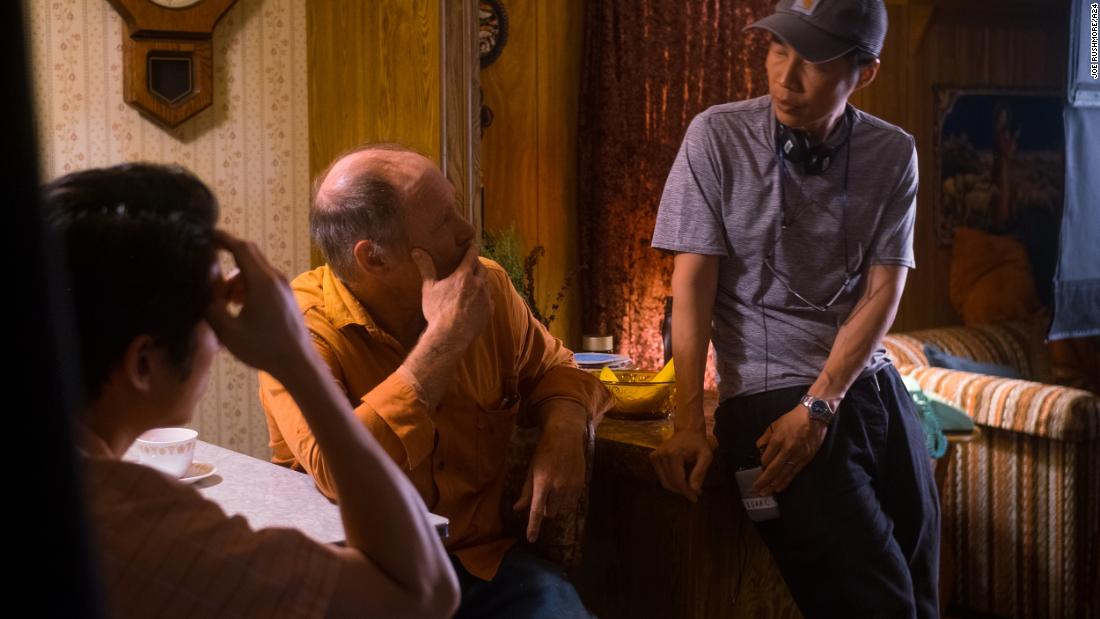“My concern was: would anyone finance this film if it weren’t in English? … I was in a position where nobody knows who I am. Nobody knows what this story is,” he said.
“You know, it’s about a bunch of farmers who are chicken sexers. It doesn’t jump off the page like a commercial effort.”
So Chung also wrote a version of the script with more English, just in case.
Fortunately, says Chung, producer Christina Oh, who is also Korean-American, supported his view.
“She was very adamant from the start that we have to do this in Korean, the way we grew up. … She said as a producer, she will go out and do this case, and do that fight. And I just trusted her”, he said.
Having the family at the center of the story speaking Korean at home added nuances and complexity to the film, he said.
“It adds, I feel, a layer of what this family is really going through and that kind of isolated feeling that you have when the reality at home is different from the outside,” he said, “and that you really try to preserve some of that reality within your own family as you feel it draining away.
Why the Golden Globe nomination was controversial
In recent months, the controversy has arisen over Golden Globe rules, which made “Minari” eligible for best foreign language film, but not a better film, because more than 50% of the film is not in English.
This raised serious questions about racism in Hollywood and asks the Hollywood Foreign Press Association to reexamine its language requirements.
“It seems personal … It looks like ‘where are you from?’ asks what Asian Americans always get, “Nancy Wang Yuen, sociologist and author of” Reel Inequality: Hollywood Actors and Racism, “told CNN. “It is assumed that if you have an Asian face, it should not be from here.”
“More than 350 languages are spoken in American homes today. So what does ‘foreign language’ mean?” said Charlene Jimenez, director of entertainment and advocacy partnerships at the nonprofit organization Define American.
“It is a very important moment for us, as an American society, to be investigating our own prejudice about films like this, about stories like this, about stories of immigrants – what resonates or not as ‘American’ for people.”
Minari’s director says the language in ‘Minari’ goes beyond any ‘American’ or foreign label ‘
Chung thanked the association for the honor in its acceptance speech on Sunday night, while alluding to the broader conversation.
“I just wanted to say that ‘Minari’ is about a family,” said Chung, accepting the award with his daughter’s arms around his neck. “It is a family that tries to learn to speak a language of its own. It is deeper than any American and foreign language. It is a language of the heart. And I am trying to learn and pass it on. I hope we can all learn to speak that language. of love with each other, especially this year. “
Chung recently told CNN that he does not feel that competing in the category of best foreign language film has dishonored his work, but he understands the frustration that many have expressed.
“I understand in the context of being Asian-American and have sometimes felt that there are situations where you feel like you’re being treated like a foreigner, including when you’re speaking Korean or a different language and, you know, you hear comments”, he said.
But Chung also sees another side to that.
“My grandmother, if she were still alive, she would be very proud that I could take it and make a film in Korean and not compromise and then start using that foreign language, English,” he said.
